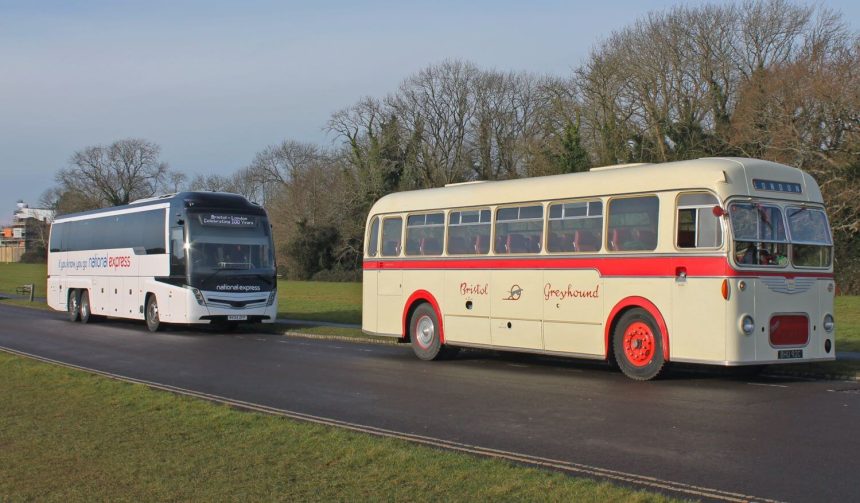Following the large-scale reductions in bus services and revenue experienced during the first national lockdown in March 2020, the Department for Transport (DfT) announced the COVID-19 Bus Service Support Grant to ensure bus services continued to operate.
With reductions in vehicle capacities being made to keep passengers safe, in May of last year, funding of £254m,was announced in order to increase capacity on buses by returning service levels to as near 100% as possible, while preparing for an economic recovery. This funding formed the basis of the COVID-19 Bus Service Support Grant (CBSSG) Restart package, replacing the Support Grant announced last March.
CBSSG Restart applies across England, with the exception of London. A similar scheme to support bus operators is also operating in Scotland and Wales.
In this article, Croner-i explains the scheme, which is subject to monthly reviews by DfT and the Treasury to ensure that full services remain at 100% for the duration of the pandemic.
What does the grant support?
CBSSG Restart was designed to provide funding to bus operators as they increased their services to 100% of pre-COVID level by September 2020. This funding was in addition to payments normally made by the public sector to support bus services such as BSOG, concessionary travel re-imbursement, home-to-school and tendered service contract payments — which have continued to be paid at pre-COVID levels.
Initially, operators had to propose the services levels they expected to run, building up to 100% of scheduled commercial mileage for a typical non-school week excluding public holidays by the start of September. These levels were agreed with the relevant local transport authorities (LTAs) particularly with regard to the critical concern of serving key workers such as NHS staff while ensuring that buses did not exceed the 50% capacity limits set by DfT.
Operators had to take all reasonable steps to respond and comply promptly with reasonable requests from LTAs to increase the services operated and the routes used by those services, hours of operation, vehicles used or levels of provision. They also supply data on service usage and operations during each funding period so that the situation can be monitored.
LTAs must also claim CBSSG Restart in respect of their own secured service operations, with claims from the operators of these services being made direct to the LTA.
Calculating payments
Payments were based on percentage of the operated kilometres when compared to that submitted as part of the 2019 BSOG claim.
For the first four weeks of the CBSSG Restart scheme (backdated to 12 May 2020), payments to operators were based on the formula given below, where £1.0051/km is the initial CBSSG Restart rate for operators. The service level was set at 55% for payments for the first four weeks.
Operators running service levels greater than 55% in agreement with the relevant LTAs and DfT should have been paid at the actual service level they were providing, throughout all three periods.
For the second period, from 9 June to 6 July 2020, payments to operators were based service levels being set at 80% to reflect the expected continued ramp up in services, or at the actual service level.
Payments for period 3, 4 and 5 have been based on ‘live’ bus kilometres and patronage (excluding concessionary passengers) data for the previous period, as provided by the operator. The grant for period 3 is calculated as below.
The CBSSG scaling factor is a simple percentage monthly patronage in line with patronage growth. This is designed to ramp down the level of support for the industry in line with the economic recovery and reduce the allowable live kilometres eligible for central government support.
Payments for period 6 (4–31 August 2020) onwards to the present time are based on the same formula, with the rate per kilometer being revised to £1.14.
Reclaiming costs
Claims for the kilometres operated during each 4 week period are made using an on-line tool and payments made based on the formula set out in period 3. These claims must be made within two weeks of the end of the operating period.
Reconciliation processes have taken place in June and September, covering the period 17 March to 8 June 2020 and 9 June to 31 August and will be repeated for each 12 week operating period into 2021. Operators were made aware of costs that can be claimed under CBSSG Restart in the Terms and Conditions that each operator agreed to.
For the most part, these terms and conditions remained the same as the original scheme announced in March 2020, but changes included the following:
- Operators are expected to run 100% of scheduled commercial mileage for a typical non-school week excluding public holidays for the period of the scheme
- Operators must work with and agreed service level increases with LTAs
- Changes to bus timetables should be communicated to passengers clearly both on websites and at bus stops in line with the guidance issued by Transport Focus.
In addition to the claim for kilometres operated, on a one off basis, operators:
- were required to submit evidence of the cost implications of removing staff early from the Coronavirus Job Retention Scheme (CJRS)
- could claim the costs involved in bringing buses out of Statutory Off Road Notification (SORN) and the cost of parts required to make vehicles fit for service
The operator can also claim the costs of personal protective equipment (PPE) such as screens around the driver’s cab on buses, additional cleaning costs and hand sanitiser can also be made on an ongoing basis.
Where to claim
CBSSG Restart is administered by DfT using staff drawn from the BSOG team, with claims for operated kilometres on commercial bus services being paid directly to the operator. The team can be contacted by email at [email protected]
CBSSG Restart claims for commercial services within the Greater Manchester border should be made to Transport for Greater Manchester (TfGM) and not to DfT.
LTAs will claim and be paid for the kilometres operated on secured services and operators of these services should claim directly from their contracting authority.
Sustaining operators
Where an operator believes that its CBSSG Restart payments are at least 20% below the level required for it to provide up to 100% service levels, and that this will likely lead to the ‘financial distress’, it may request a review of the payments. DfT has said that it will not reasonably refuse an operator the opportunity to share such financial and operational information with the Department so that it may determine whether the operator’s CBSSG Restart payments should be adjusted. Based on the information provided by the operator, DfT will undertake a review of the payment rate, at its sole discretion.
If the expected payment to an operator based on the formulas in the payments section above are likely to result in the operator achieving a profit before tax during that period by 20% or more, they should inform DfT promptly, proposing a lower per km payment to reflect their anticipated profit before tax.
Operators will not be able to make payments to shareholders, unless the shareholders receiving a payment are directly involved in the day-to-day operation of the company and are being paid in lieu of salary, covering the period in which the operator was in receipt of CBSSG and/or CBSSG Restart funding. Part of the reconciliation exercise will assess compliance with the conditions of the grant and to ensure that operators have not derived a profit, or loss, before tax while in receipt of CBSSG Restart funding.
Extended support
On 8 August 2020, the government extended coronavirus support for bus and tram operators across England as part of wider efforts to get people back to education and the workplace safely. Bus services across the country were told to expect up to £218.4 million of support over the following eight weeks, with rolling funding at up to £27.3 million per week thereafter. Transport Secretary Grant Shapps said that this would be available until “a time when the funding is no longer needed”.
The Scheme in 2021
At the time of writing (January 2021), the Scheme is continuing to provide support for local bus services during these very difficult times. Operators should continue to make their claims as outlined above and can expect to be paid mid-month and at end of each month, and within four to six weeks of receipt of claims.
It should be remembered that the payment of claims remains subject to the reconciliation process, with DfT providing notification of the reconciliation outcomes and confirmation of the payment mechanism for under or over payments in due course.
Further details on grants and subsidies can be found in the topic in Croner-i Transport-inform.

























